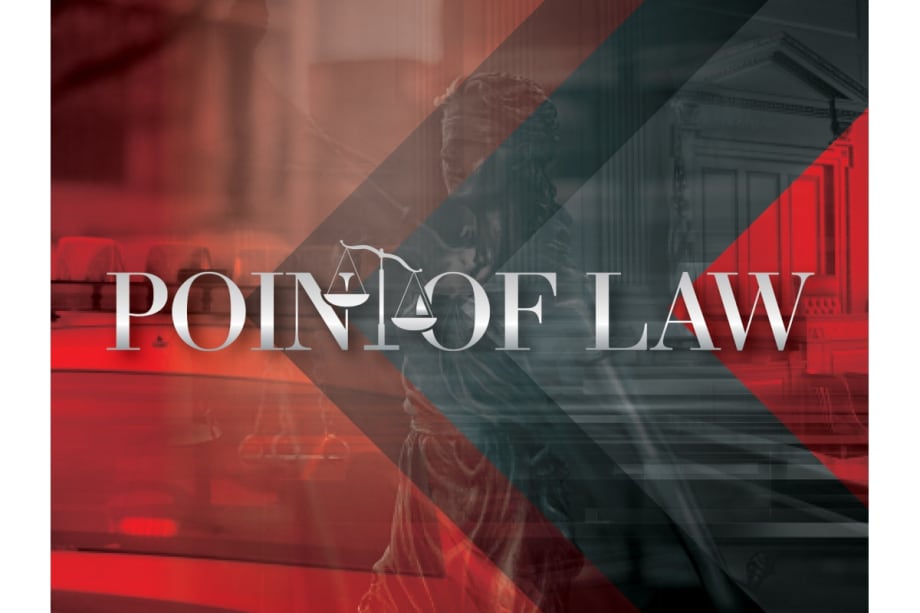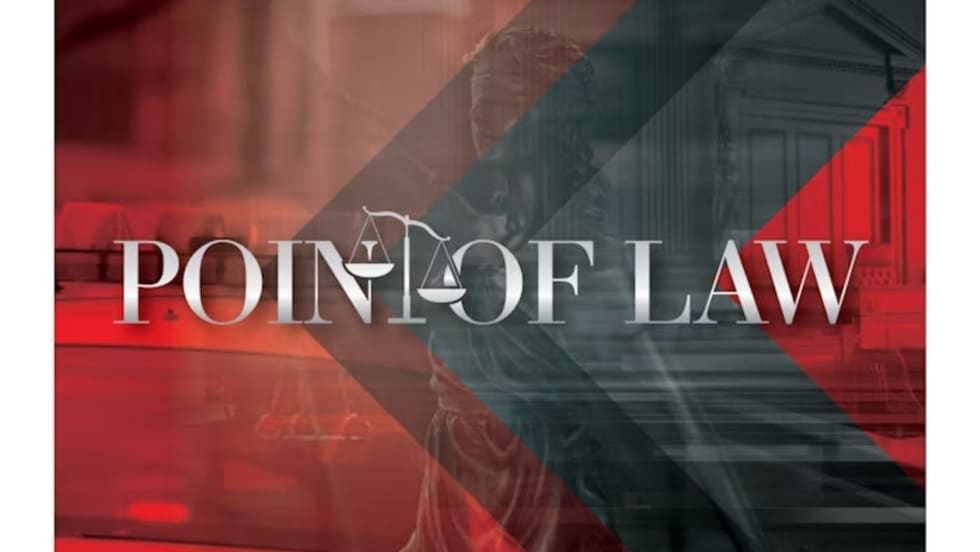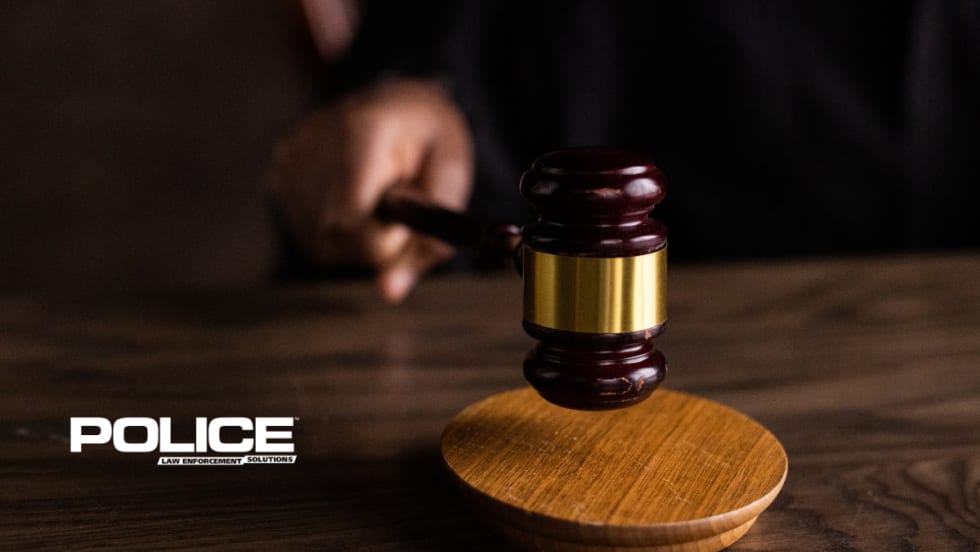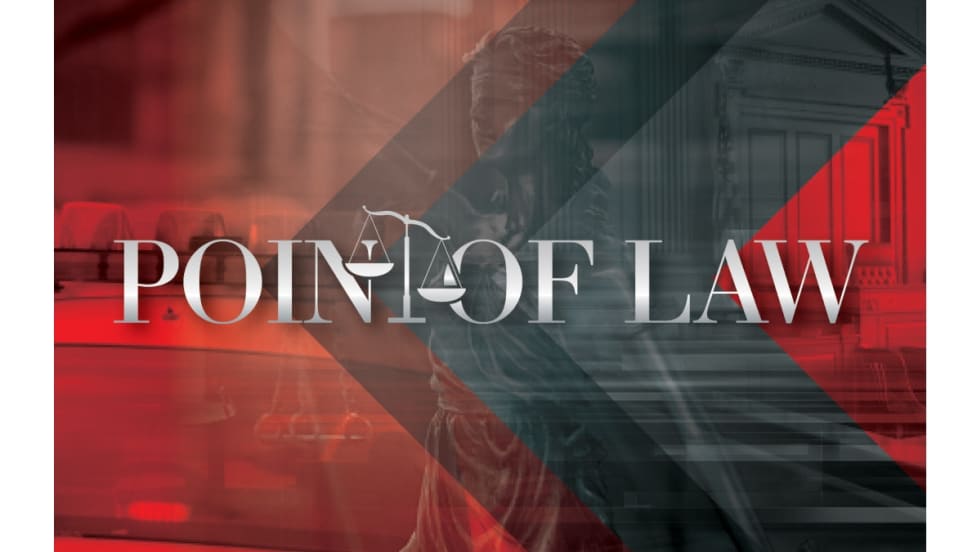What does the U.S. Supreme Court’s decision in Thompson v Clark mean for you.
On April 4, the Supreme Court of the United States (SCOTUS), in the matter of Thompson v. Clark, held that for purposes of a Fourth Amendment claim under § 1983 for malicious prosecution, a plaintiff is not required to show that the criminal prosecution ended with an affirmative indication of innocence. Rather, the plaintiff need only show that the prosecution ended without a conviction. Let’s look at the case and what the ruling means for law enforcement.
THE CASE
Back in 2014 Larry Thompson lived with his fiancé (now his wife) and his newborn daughter in a Brooklyn apartment. His sister-in-law was also residing in the apartment. The sister-in-law called 911 and claimed Thompson was sexually abusing his one-week-old daughter. Two EMTs responded, but when they arrived at the residence, Thompson denied that anyone had contacted 911.
The EMTs returned with four police officers, but Thompson told them they could not enter the apartment without a warrant. The officers entered the apartment and handcuffed Thompson. The EMTs examined the newborn baby and, finding red marks on her body, took her to the hospital to be examined. Medical personnel at the hospital determined the marks were a case of diaper rash and found no signs of abuse.
The officers arrested Thompson for resisting their entry into the apartment, and he was taken to the local hospital and then to jail. The officers charged Thompson with “obstructing governmental administration” and “resisting arrest.”
Before the matter reached trial, the prosecution moved to dismiss the charges and the trial judge dismissed the case. The prosecutor did not provide an explanation as to why she sought to dismiss the charges, and the trial judge did not provide an explanation as to why he dismissed the case.
Thompson brought suit for damages under § 1983 against the police officers who had arrested and charged him, alleging several constitutional violations, including a Fourth Amendment claim for “malicious prosecution.”
Under Second Circuit precedent, to prevail on a claim for malicious prosecution in violation of his Fourth Amendment rights, Thompson was required to show that his “criminal prosecution ended not merely without a conviction, but also with some affirmative indication of his innocence.”
Since Thompson could offer no explanation as to why the prosecutor moved to dismiss the charges or why the trial judge dismissed the case, he was unable to show that his case ended with an affirmative indication of his innocence. As such, the District Court ruled that Thompson’s criminal case had not ended with an affirmative indication of his innocence and granted judgment to the defendant officers. On appeal, the U.S. Court of Appeals for the Second Circuit affirmed the dismissal of Thompson’s Fourth Amendment claim.
The case then went to the U.S. Supreme Court
SCOTUS’ OPINION
As stated, to maintain such a Fourth Amendment claim under § 1983, a plaintiff must demonstrate, among other things, that they obtained a favorable termination of the underlying criminal prosecution. The primary question the Court analyzed was, what does a favorable termination entail? Is it enough for the plaintiff to show only that their criminal prosecution ended without a conviction? Or, must have the plaintiff also demonstrate “that the prosecution ended with an affirmative indication of their innocence, such as an acquittal or dismissal accompanied by a statement from the judge that the evidence was sufficient?”
As the various Courts of Appeals have split over how to apply the favorable termination requirement of the Fourth Amendment claim under §1983 for malicious prosecution, the U.S. Supreme Court granted certiorari to resolve the split.
When determining the elements of a constitutional claim under § 1983, it is SCOTUS’ practice to first look to the elements of the most analogous tort as of 1871, when § 1983 was enacted, “so long as doing so is consistent with the values and purposes of the constitutional right at issue.” SCOTUS determined that the most analogous tort to the Fourth Amendment claim is maliciousprosecution.
Courts have described the elements of the malicious prosecution tort as follows: “(1) the suit or proceeding was ‘instituted without any probable cause;’ (2) the ‘motive in instituting’ the suit ‘was malicious,’ which was often defined in this context as without probable cause and for a purpose other than bringing the defendant to justice; and (3) the prosecution terminated in the ‘acquittal or discharge of the accused.’”
The third element of this tort—what constitutes a “favorable termination of the underlying dispute”—is the focus of SCOTUS’ decision. SCOTUS found that in reviewing court decisions considering the question, American courts as of 1871 were largely in agreement that the “‘technical prerequisite is only that the particular prosecution be disposed of in such a manner’ that it ‘cannot be revived.’” Courts found that a favorable termination can include the dismissal of a matter because it “marked an end to further proceedings against the defendant” on the charges. Likewise, courts held that plaintiffs could maintain a case for malicious prosecution when a prosecutor “abandoned the criminal case” or the court “dismissed the case without providing a reason.” SCOTUS further noted that the “treatises of that era agreed that a favorable termination occurred so long as the prosecution ended without conviction.”
SCOTUS found that “because the American tort law consensus as of 1871 did not require a plaintiff in a malicious prosecution suit to show that his prosecution ended with an affirmative indication of innocence, we similarly construe the Fourth Amendment claim under § 1983 for malicious prosecution.”
SCOTUS concluded that a Fourth Amendment claim under §1983 for malicious prosecution does not require the plaintiff to show that the criminal prosecution ended with some affirmative indication of innocence. Rather, a plaintiff need only show that the criminal prosecution ended without a conviction. As such, SCOTUS reversed the judgment of the U.S. Court of Appeals for the Second Circuit and remanded for further proceedings consistent with its opinion.
In its decision, SCOTUS explicitly stated that it expressed no view on any additional questions that may be relevant to the matter on remand, including whether Thompson was ever seized as a result of the malicious prosecution, whether he was charged without probable cause, and whether the officers were entitled to qualified immunity.
TAKE AWAY
What does this decision mean for the future of law enforcement? Will the Court’s holding have a chilling effect on an officer’s decision to arrest? Will prosecutors be less willing to dismiss cases prior to trial, when to do so could result in an increase in malicious prosecution cases? While these possible consequences are likely not what the Court intended, they very well could be the end result of such a decision.
During its analysis, SCOTUS opined that its decision would not affect an officer’s protection from unwarranted civil suits as, among other things, officers are still protected by the requirement that the plaintiff show the absence of probable cause and by qualified immunity. What various law enforcement agencies understand, however, is that the concept of qualified immunity has come under attack by legislatures throughout the country. The assurances by SCOTUS that officers have this option available to them does not necessarily instill confidence amongst officers or law enforcement agencies.
Judge Alito filed a Dissenting Opinion in which he stated, “What the court has done is to recognize a novel hybrid claim of uncertain scope that has no basis in the constitution and is almost certain to lead to confusion.” Alito further stated that “the Court claims that the ‘gravamen’ of petitioner’s Fourth Amendment claim is the same as that of a malicious prosecution claim: the ‘wrongful initiation of charges without probable cause.’ . . . But what the court describes is not a Fourth Amendment violation at all. As explained, that amendment protects against ‘unreasonable searches and seizures’ not the ‘unreasonable initiation of charges.’” Alito concluded that “the Court’s recognition of a Fourth Amendment malicious-prosecution claim has no basis in our precedents.”
Eric Daigle is founder of Daigle Law Group, LLC, a firm that specializes in law enforcement operations. A former Connecticut State Police officer, Daigle focuses on civil rights actions, including police misconduct litigation. He is a legal advisor for police agencies across the country and member of the POLICE Advisory Board.






